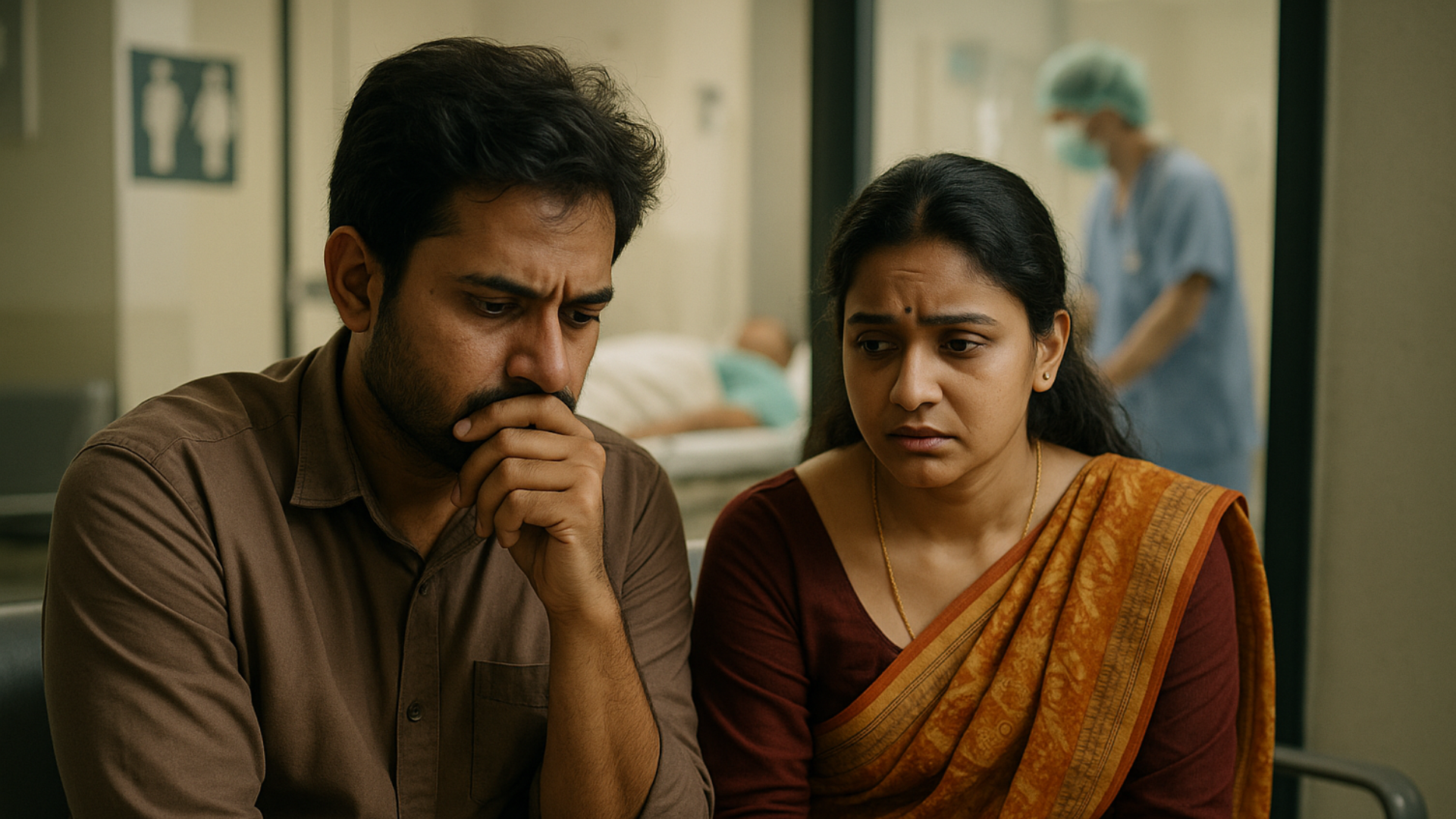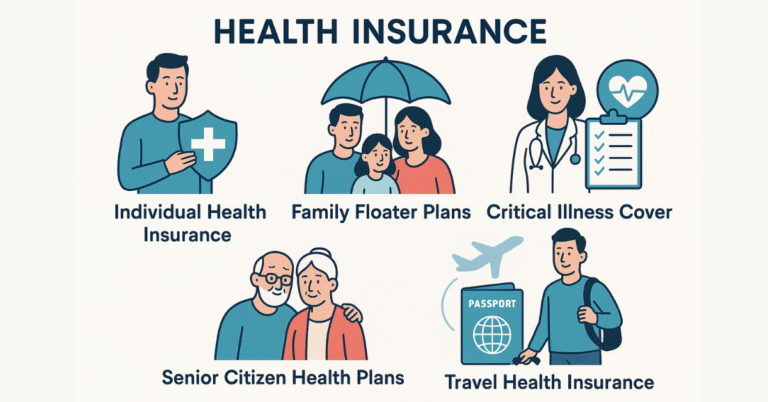What to Do If Your Hospital Demands Advance Before Emergency Surgery

A True Story That Shook Us
In March 2025, a heartbreaking story came out of Pune. A 30-year-old pregnant woman was taken to Deenanath Mangeshkar Hospital with serious complications. Her family says they were asked to deposit ₹10 lakh in advance before any emergency care was provided. They managed to arrange ₹2.5 lakh, but the hospital still allegedly refused treatment. She was taken to another hospital, gave birth to twins and tragically died soon after.
Her death caused outrage across India. In response, Pune’s local government issued a notice to all private hospitals: “You cannot demand advance money for emergency care. It is illegal.”
But this wasn’t just a hospital issue it was a financial crisis during a medical emergency. And it’s something any family could face tomorrow.
In an Emergency, Money Shouldn’t Decide Life or Death
Let’s be very clear: Indian law protects your right to emergency treatment. Whether the hospital is public or private, they cannot legally deny life-saving care because you can’t pay upfront.
Under Article 21 of the Constitution, the Supreme Court has ruled that every person has the Right to Life, and that includes emergency medical care. There are also rules from the Medical Council of India, and laws like the Clinical Establishments Act, which say hospitals must act first and handle money later especially during what’s called the Golden Hour, the first 1 hour when treatment can save lives.
Still, many hospitals ignore these rules. Families don’t know their rights, staff don’t feel accountable, and people in shock do the only thing they can: open their wallets and say, “We’ll pay anything just save them.”
That’s exactly where smart thinking not panic is needed.
What You Should Do If a Hospital Demands Advance Payment
Stay calm and assert your rights kindly but clearly.
If you’re at a hospital and they refuse to treat your loved one without money, take a deep breath. Politely but firmly say:
“This is a life-threatening emergency. According to Indian law and Article 21 of the Constitution, the hospital cannot legally deny treatment right now. We are ready to clear payments, but first, please start the urgent care.”
You don’t need to shout or fight. But being confident, informed, and composed can change how the hospital responds.
Speak to someone senior not just the front desk.
Many times, it’s the lower-level staff who are unsure or scared of rules. Ask to speak directly to:
- The Medical Superintendent
- The Hospital Administrator
- Or a Senior Doctor in Charge
These are the people who usually understand the legal risks. Tell them the patient is in danger and that you’ll arrange money but they must begin treatment immediately.
Don’t Rely Only on Wallet or Emotions Use Emergency Funds First
In that moment, it’s natural to feel desperate and pay whatever you can. Many people swipe credit cards, borrow from neighbors, or drain their savings. That’s okay but it’s better if you already have an emergency fund kept aside for this exact situation.
An emergency fund is not a luxury. It is your first shield during a life crisis. If you have ₹50,000 or ₹1 lakh kept in a separate emergency-only account, you won’t need to panic or make poor choices under pressure.
If you don’t have one yet, make this story your reason to start today.
If you do use it confidently. That’s why you saved it.
Only if that fund runs out should you turn to:
- Trusted family or friends
- Health-related crowdfunding
- Emergency credit cards (with low interest, not payday apps)
- Pre-approved personal loan options (but only if needed)
Even then, make sure the treatment begins immediately and do not give up your rights just because you feel helpless.
What If You Have Insurance?
If the patient is insured, call the insurance company at once. Tell them it’s an emergency.
Many insurance companies have 24×7 helplines and can speak to the hospital directly. Even if the hospital doesn’t offer “cashless” treatment, you can ask your insurer about reimbursement and guarantees.
Tip: Always keep your insurance card and policy number ready in your wallet or saved in your phone.
Record and Document Everything You Can
In emergencies, it’s hard to think clearly. But try to note names, times, and conversations. Write down what the hospital staff says. If you’re with a trusted person, ask them to keep records or take photos of documents.
If possible and safe (and depending on local laws), record audio or video when being denied treatment. This can help in case of legal action later.
This step isn’t just for justice it’s to protect your family in case the hospital tries to blame you or hide their actions later.
Who to Call If the Hospital Still Refuses Treatment
Sometimes, even after everything, a hospital refuses to act. In such cases, you can get outside help immediately:
- Dial 112 (Police Emergency): If someone’s life is at risk and care is being denied, the police can step in.
- Call the State Health Department: Every state has a health helpline. Tell them the hospital is breaking emergency care laws.
- Consumer Helpline (1800-11-4000): You can report hospitals that deny urgent services.
- NGOs & Patient Rights Groups: Look for local organizations like People for Better Treatment, VHAI, or consumer groups that help with hospital abuse.
- State Medical Council: File a complaint later for professional misconduct.
What If the Surgery Happens But You Can’t Pay the Full Bill?
Some hospitals try to detain patients or even dead bodies until bills are paid. This is completely illegal.
Once treatment is done and the patient is stable, the hospital must discharge them, even if the full bill isn’t paid. They can take legal steps to recover dues later, but they cannot hold your family member.
If this happens:
- Call the police (112)
- File a complaint with the health department and consumer forum
You have legal protection. Use it without fear.
Final Words: Don’t Let Panic Cost a Life or Your Future
When someone you love is in a hospital emergency, your mind freezes. That’s normal. But acting wisely in those first few minutes can make a big difference.
- Know your rights
- Use your emergency fund, not your emotions
- Speak calmly but firmly
- Get help if you need it
The Pune tragedy was a wake-up call. We can’t stop emergencies, but we can prepare, learn, and refuse to let money be the reason someone dies.





